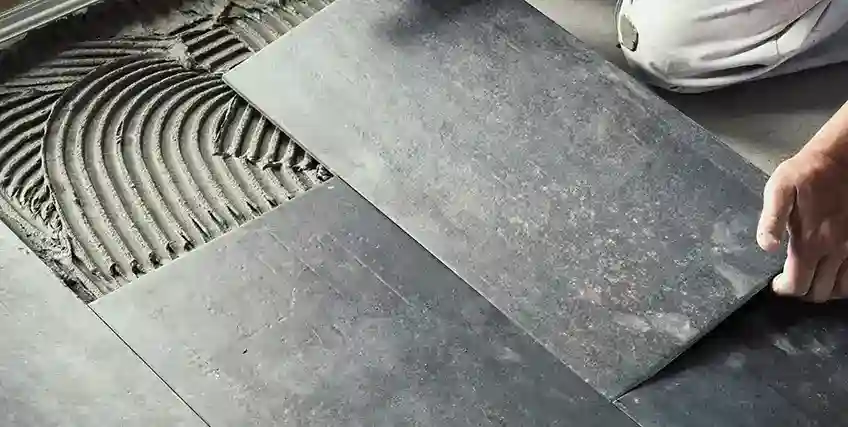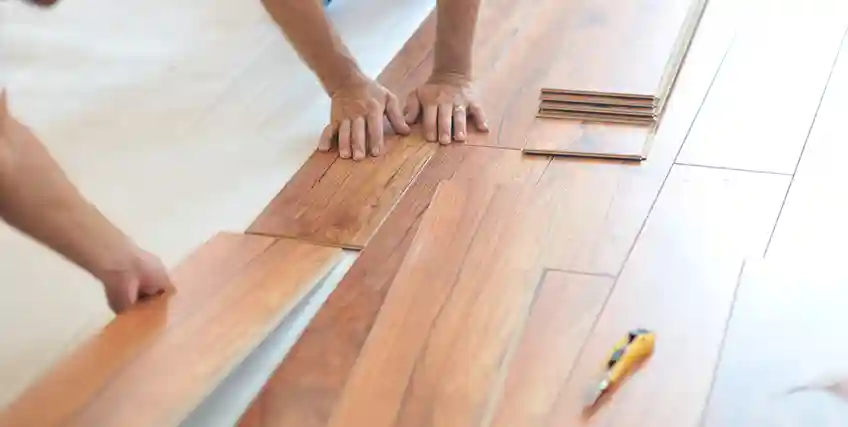How to Finance a Flooring Business Without Tapping into Personal Savings
November 26, 2025 | Last Updated on: November 26, 2025

As a flooring business owner most of your time and energy would go into how you can do better in this business, attract potential customers, and provide them with something which is different from the already existing flooring business. You also would want to create job opportunities for your staff and hire new employees as well. As a flooring company, you may run out of cash between all your thoughts and practices.
However, you should not feel why this is happening to you or to your business, because cash flow is an issue that happens in any type of business. In this case the option which you as a small business owner would take would be to use your personal savings account and make it to the next quarter. Although this would be a convenient way, but can deplete your savings quickly and won’t leave you with any emergency funds.
There are some other ways also through which you can manage your cash flow situation for flooring solutions without disturbing your personal savings account. Read this article to know all about the same and make decisions wisely.
Personal account as best flooring financing
Making use of personal money for funding your business means using your savings, credit, or assets on the line for managing your startup or operational costs of a flooring business. This will include fetching money from your savings, making use of a personal loan or a line of credit, liquidating investments, using personal credit cards, to finance your commercial flooring business expenses.
This type of funding acts as an attractive option when you want to avoid giving up ownership of the flooring business, or you are under a large amount of debt.
Although this strategy can bring you out of the well and help you with quick capital, it is necessary for you to understand the risks associated with it. If your tile flooring business doesn’t run well, you would lose your assets or create financial instability for yourself and your family members.
Financing options without using personal savings
Even though getting work done by using personal savings is an attractive option, there are other financing options as well, which can help you with your flooring business. Below are some of those options.
Business loans
A business loan always acts as a great alternative option which you are planning to not to use your savings or assets. Business loans provide you with multiple options like SBA loans, term loans, line of credit and much more. These options will allow funding for your flooring business and will let you keep full ownership.
There is a wide range of financing options available online to help you with financing solutions in the flooring industry, where hardwood flooring financing, wood flooring, and laminate flooring are done to meet the unique requirements of small business owners. Whether you are in need of a short-term loan for funding major plans of expansion or anything else, these flooring business loans will always help you.
Grants and competitions
There are a variety of government and private sector grants available to small businesses, including those in the flooring business, particularly if your work focuses on innovation, sustainability, or addressing social challenges. These grants don’t require repayment or ownership sacrifice, but they are highly competitive and often come with strict eligibility and reporting requirements.
Some organizations and foundations also host business competitions that offer cash prizes or financial support. For flooring contractors looking to expand, invest in new tools, or showcase innovative types of flooring, these opportunities can provide valuable funding without taking on debt or giving up equity.
Crowdfunding
Crowdfunding platforms will allow you to raise money from a larger group of people. In exchange of funding, bankers may get access to products without delay, special perks, or even equity in your flooring business, which will depend on the platform.
This funding could be among the best flooring financing options for you if you have a compelling product or business idea that will resonate with a wide audience. It’s also a great marketing strategy, which needs market research to allow you to build a community of supporters and validate your business plan.
Venture capital and angel investors
If you're open to giving up a portion of ownership in exchange for funding, venture capital (VC) or angel investors could be a viable option, especially for scaling a flooring business. These investors typically provide substantial capital in return for equity or convertible debt, which can help you expand operations, open a showroom, or invest in new flooring inventory and equipment.
While this type of funding can accelerate growth, it also means sharing decision-making power with your investors. Before moving forward, be sure to fully understand and feel comfortable with the terms.
Protect yourself when using personal savings
In case of an emergency, and you think of using your funds for business, below are some measures that you should always be mindful of.
Form a separate legal entity
If you want to protect your finances, then a common way to do so is by setting up a separate legal entity, like an LLC (Limited Liability Company) or a corporation. This will help you in creating a clear distinction between your flooring business and assets, which will also shield your personal property in times when your business faces any legal trouble or falls into debt.
By forming a separate legal entity, you can help safeguard your finances from potential liabilities. Still, this protection is only adequate if you maintain proper business practices, such as keeping separate business and personal accounts and adhering to the legal requirements for your business structure.
Keep track of your cash flow
Even during the times when you are using your personal funds, it is important for you to monitor the cash flow of your business closely. You should regularly keep a track of your revenue and expenses to see whether your business is operating efficiently and generating enough income for covering your costs. This way, you will be able to make an informed decision about your reinvestment in the company or when you would seek alternative financing options.
Keep business and personal expense separate
Maintaining a clear boundary between your personal and business finances is essential for the long-term success of your flooring business. One of the first steps is opening a dedicated business bank account. Using this account exclusively for all business-related income and expenses will streamline your bookkeeping and tax preparation and give you a more accurate view of your company’s financial performance.
It’s also important to avoid using personal credit cards for business purchases. Instead, apply for a business credit card or a line of credit under your flooring business’s name. This helps keep your expenses organized and builds a solid financial foundation as your business grows.
Set limits on investments
When you are using your personal funds for your flooring business, you should set clear limits on your investment. You should consider how much you can afford to lose without compromising your financial security. This will include assets and money, like retirement savings or emergency funds of the family.
Final thoughts
While using personal savings to fund your flooring business may seem like a quick fix during cash flow challenges, it’s essential to explore more sustainable financing options that won’t put your financial security at risk. Business loans, grants, crowdfunding, and investors can all offer valuable support without draining your savings.
Protecting yourself legally, monitoring cash flow, and keeping business and personal finances separate are critical steps toward long-term success. By being strategic and proactive, you can maintain financial stability, grow your flooring business, and create lasting opportunities without jeopardizing your personal assets or peace of mind. However, if unsure it can be best to consult with a financial professional.
FAQs about the flooring business
How can I apply for a business loan without attaching personal finances?
If you're looking for a small business loan but don't have assets to offer as collateral, several viable options remain loan but don't have assets to offer as collateral, there are still several viable options. Start by leveraging your credit score to qualify for unsecured loans or lines of credit. You can also explore creative financing methods like invoice financing. If you’ve formed a limited liability company (LLC) or plan to start your own business, begin building your business credit as early as possible, it can significantly expand your financing opportunities in the future.
How to get a business loan without using personal credit?
To secure a business loan without relying on your credit, explore financing options such as invoice factoring, merchant cash advances, and loans from payment processors. These solutions are typically based on your business’s revenue and cash flow rather than your personal credit history. To strengthen your position, focus on building your business credit by keeping your business and personal finances separate. Additionally, consider working with alternative lenders who prioritize your company’s performance over personal financial data.
How to buy a business with no savings?
SBA loans and seller financing are two of the most common ways to buy a business with little to no money down. Other financing options, such as equipment loans, may also be available depending on the type of business you're acquiring. One of the most effective step-by-step strategies for building long-term profitability and wealth is to start your own company and grow it over time.
What is a no doc loan for LLC?
A “no-doc business loan” is a type of small business financing that requires minimal documentation to qualify. While convenient, these loans usually come with higher interest rates and shorter repayment terms than traditional bank loans or Small Business Administration (SBA) financing. For entrepreneurs in the flooring business or those running a flooring installation business, no-doc loans can offer quick access to capital, but it’s important to weigh the costs carefully before proceeding.
Can you get business credit with no LLC?
You don’t need a registered business like an LLC or corporation to open a business credit card. If you're doing any independent work that generates or is expected to create income, you may qualify for top business credit cards. For example, if you're running or starting a flooring installation company, having a business credit card can help you manage expenses, improve cash flow, and ultimately boost your profit margins.




